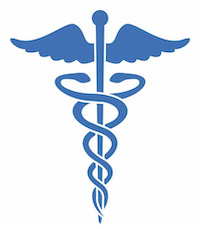March is National Colorectal Cancer Awareness Month, which is a time set aside every year to promote the importance of screenings.
According to the CDC, regular screenings should begin when you turn 45 years old.
“Colonoscopies, which is a really important part of the screening process for colorectal cancer, they’re really helpful when you have a problem and it helps us identify whether there is an issue going on, like a cancer,” said Arielle Kanters, MD, colorectal surgeon for Cleveland Clinic. “But, it can also help us identify polyps that could eventually turn into a cancer.”
Dr. Kanters said symptoms of colorectal cancer can include change in bowel habits, blood in your stool, abdominal pain, unexplained weight loss and anemia.
There are also situations where a person may not experience any symptoms, which is why regular screenings are so important.
When it comes to treatment, it depends on the severity of the cancer. Some may need surgery while others could have to undergo chemotherapy.
Dr. Kanters said even though 45 is the recommended age for screenings, those with a family history of cancer should get checked out sooner.
“It depends on which family member has a history of colon cancer, and this is one of those things that’s really important to talk to your primary care doctor about, making sure that they understand, because we can risk stratify you based on who in your family has a history of colon cancer,” said Dr. Kanters. “It’s very different if it’s your dad than if it was your mother’s aunt.”
Dr. Kanters said while the exact cause of colorectal cancer varies from person-to-person, there are certain risk factors that could play a role, like age, being overweight, unhealthy diet, sedentary lifestyle and alcohol or tobacco use.
• • •• • •














